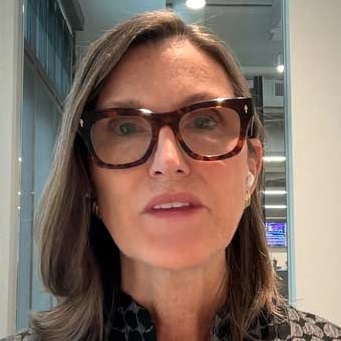Morningstar recently interviewed Colin Wilcox of the FCA to find out more about the impact of RDR and how successful advisers have been in adapting to the changes required.
Ana Georgiou: There have been reports that 5000+ advisers have left the market this year, is this a true representation, or is it an inflated number because not all advisers have yet fully qualified?
Colin Wilcox: We know that there are over 31,000 retail investment advisers working in the market, which tied in with our estimates. There is lots of external research into this matter from parties with specific interests. You get opinions that are so diverse, but the reality is probably somewhere in the middle of the extremes.
For instance, compare it to the extremes of the Advice Gap research that has been published. On one side the IFP state there are 11 million potential new clients and on the other Deloitte say there 5 million people losing advice.
The tricky piece is identifying people who want to get advice and now find they either can't get it or don't want to pay for it. Actually, if people choose not to pay for advice when they look at the value that is being delivered, for us that's quite a good outcome because it's giving consumers choice and transparency. However, if they can't afford advice and they want it, that’s not a positive outcome. But the market has started to adapt to delivering lower cost solutions for certain types of clients, and so any advice gap is likely to be less than the extreme projections.
Georgiou: Have you started meeting with advisers to audit them for RDR compliance?
Wilcox: We have started a formal piece of thematic work on disclosure documentation and the scope of service. It will most likely run in three cycles, with the first cycle running now, over the first half of 2013. We will repeat this over the second half 2013, and then potentially run it again over the first half of 2014.
Our focus is initially on a small sample, roughly 50 firms. We're at the stage where we've collected all the information for desk-based reviews. Follow-up work will be visits to roughly 20 firms, which will happen over the next month to six weeks, and we will then publish the findings.
In some cases we may find firms haven’t quite met our expectations or they've missed some key points. Our goal is to get the message out as quickly as possible to help advisers adjust their disclosure documentation and scope of service where necessary.
As we repeat this cycle the adviser community should be very much aware that our expectations will increase.
Georgiou: So, initially you are looking to provide the market with guidance on where mistakes might have been made?
Wilcox: Yes, very much so. But we are not turning a blind eye. If we find any major problems, we would take action, even enforcement as a final ultimate sanction. But we're mostly interested in ensuring firms are trying to do the right thing and we’ll provide support by presenting the good and poor practices in the marketplace. That approach should work, both for advisers and the regulator.
Georgiou: What type of business controls should advisers have in place?
Wilcox: Business controls are a key focus for us. The current wave of our regular work with small firms is all about business risk, which we are supporting with business risk awareness workshops.
Essentially, we're looking for firms to consider the risks they run in their business. Advisers should be asking themselves, ‘What are the potential pitfalls in what I do?’
Some risks will be purely business related, for example, do you have the legal structure right. But a lot of the business risks overlap with regulatory issues. For instance having a knowledge gap in your team is a business risk, as the team will not be as efficient or productive as they could be, but this may also mean they do not deliver good outcomes for clients. So the regulatory competency requirements tie into the business risks a firm has.
We are encouraging firms to build appropriate mechanisms and frameworks to mitigate business risk. But, it doesn’t have to be complex.
Georgiou: When looking at the suitability of investments for clients, what are your expectations?
Wilcox: Very simply, that you deliver a good outcome, which is a suitable outcome for your client. It's the process that all advisers follow: understanding the client's needs in the first place, understanding enough about them to know what level of risks they are comfortable with and what capacity of loss they have, plus understanding their aspirations in terms of what they are trying to achieve.
Advisers need to understand the role that any kind of risk profiling plays within their process; they need to be capturing all the salient information from their clients. They need to ask themselves, ‘Do the answers to these 11 questions actually accurately reflect that client's desires, aspirations, and concerns?’
We are encouraging firms to use technology. And we are comfortable with risk profiling tools that can link to a predesigned portfolio of investments, as long as they are suitable. But the adviser needs to be confident the technology they are using supports the outcome they are trying to deliver and they must ensure the client ends up with a suitable solution to their clients’ needs. This needs to take into account not just their risk profile, but their capacity for loss, and the investment horizon.
Use technology, but use it wisely, understand what the technology does and doesn't do in terms of supporting your ability to deliver a suitable outcome for your client.
Georgiou: Following on from your comments about technology. Recently, there has been increased usage of central investment propositions (CIPs) such as discretionary fund management services (DFMs). Is it important for DFM propositions to map themselves to the outcomes from popular risk profiling tools?
Wilcox: Absolutely, a lot of firms are using DFMs. There is, obviously, a risk that if you use a risk-profiling piece of kit over here, a piece of software over there, that the risk bandings may not match.
A lot of this works very well. We see no fundamental problems in terms of it as a concept. It's probably quite a neat idea and it can probably deliver some very good outcomes for clients.
But advisers who are using it just need to think carefully in terms of what are the risks involved in having these processes in place? Ensuring if a client’s coming out as cautious investor that the portfolio they invest in does actually reflect their view of what cautious investors should invest in.
Some cautious portfolios have relatively significant amounts of money invested in equities. If you've got a person who don’t want to lose money, that's not necessarily a great match.
This is an area where advisers can really add value in terms of that human interface--in terms of evaluating the computer output--the adviser really adds value by asking, ‘Do these two actually marry up and work?’
Georgiou: Final question, could you talk about the new structure at the FCA and what it means to advisers?
Wilcox: Absolutely. For the small typical retail investment adviser, essentially the supervisory process remains fairly similar. There’s a continued requirement to supply the data that's the primary source of intelligence and information that we use on the market.
The key difference the advisers might start to see is how we do thematic work. As an example, I was talking earlier about growth of the non-advised market. If we see changes in the marketplace we are likely to have a thematic study probably earlier on in the development cycle, to evaluate what's going on in a particular market.
For instance, if more advisers start using or building simplified advice processes, that would be a bit of a change within the financial adviser market in some respects. We might say, okay, then we’ll do a piece of work on that. We will do it on the same basis, but hopefully at an earlier stage, to identify good practice and poor practice quickly.
So there is a chance the smaller financial advisers may see an increase in supervisory contact, but not on a dedicated firm analysis more likely focused on an element of their business related to the theme we are investigating.
The business risk awareness work carries on. The supervision essentially carries on as it is, but there is the potential that if firms are outliers or innovators, if we see it worthy of attention, we might focus a piece of thematic work in that space.
The key point to make is that we are trying to be more open, and we are trying to build a more constructive dialogue with the marketplace. So where we see opportunities to try and engage with the market, we'll certainly try and do that. We want to try and understand the evolving marketplace itself, such as changes, innovation and challenges. There is a very big focus on new products coming to market, new services coming to market, and if they cause a concern then we are interested. A key part of my job is this forward-looking piece. We are keen to engage with the marketplace, to understand what changes are occurring. We don’t want to suppress innovation; in fact the early evaluation will probably give people more confidence in adopting market changes.
Georgiou: Thank you.
Morningstar offers products and services for financial advisers including Morningstar Adviser Workstation, the multi-award winning practice and portfolio management system for financial advisers. Click here to learn more about this all-inclusive platform designed to support core aspects of your business in an RDR world.



























